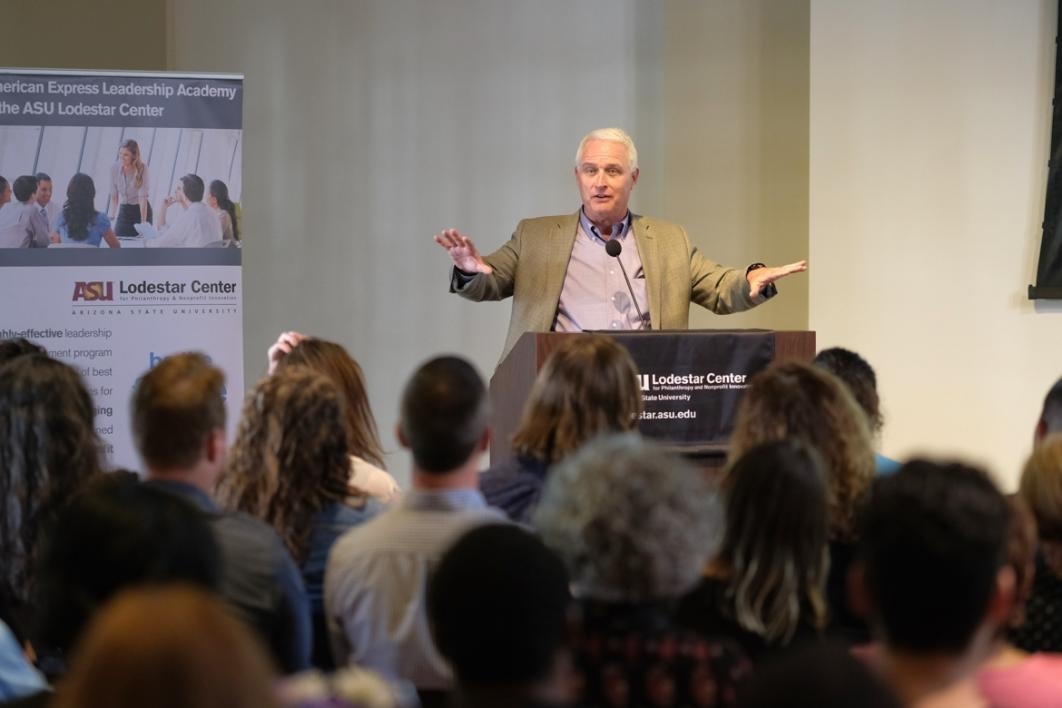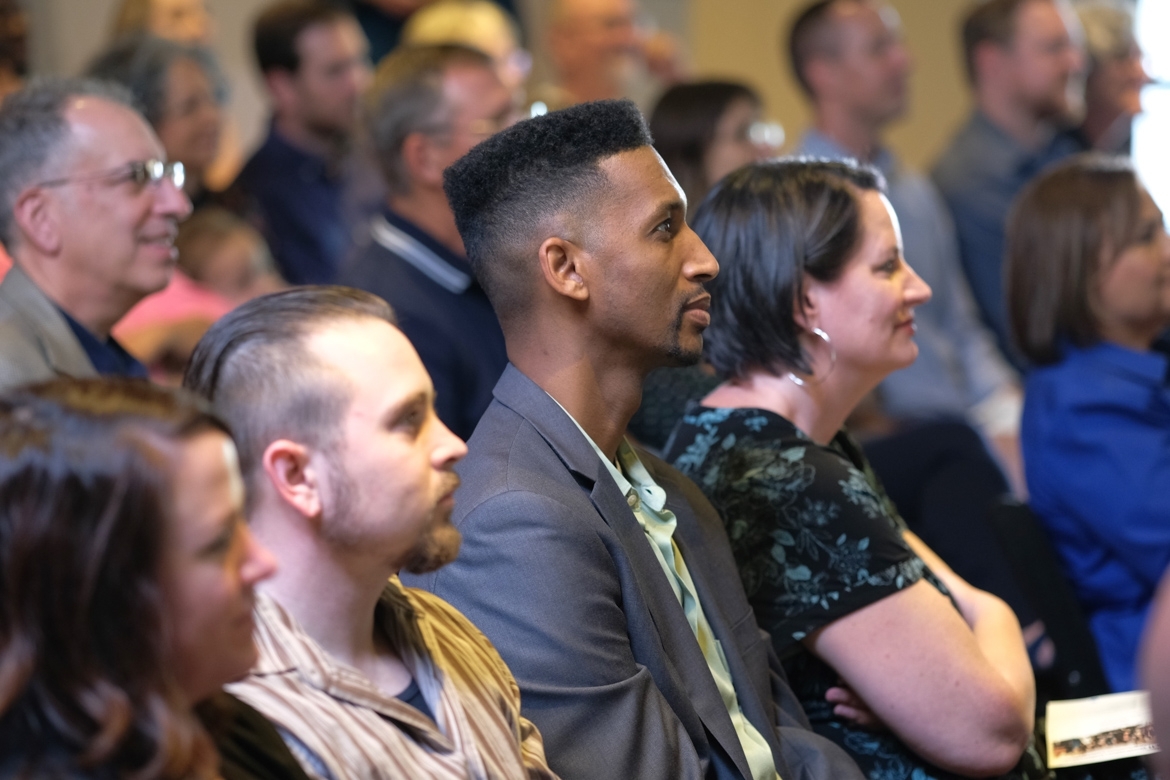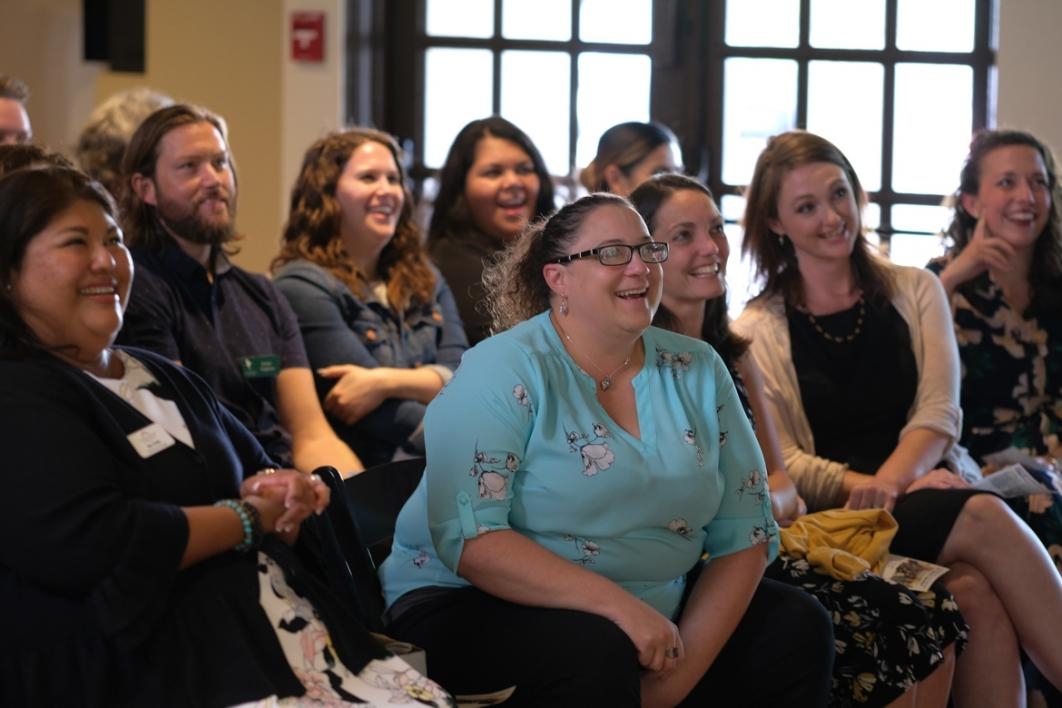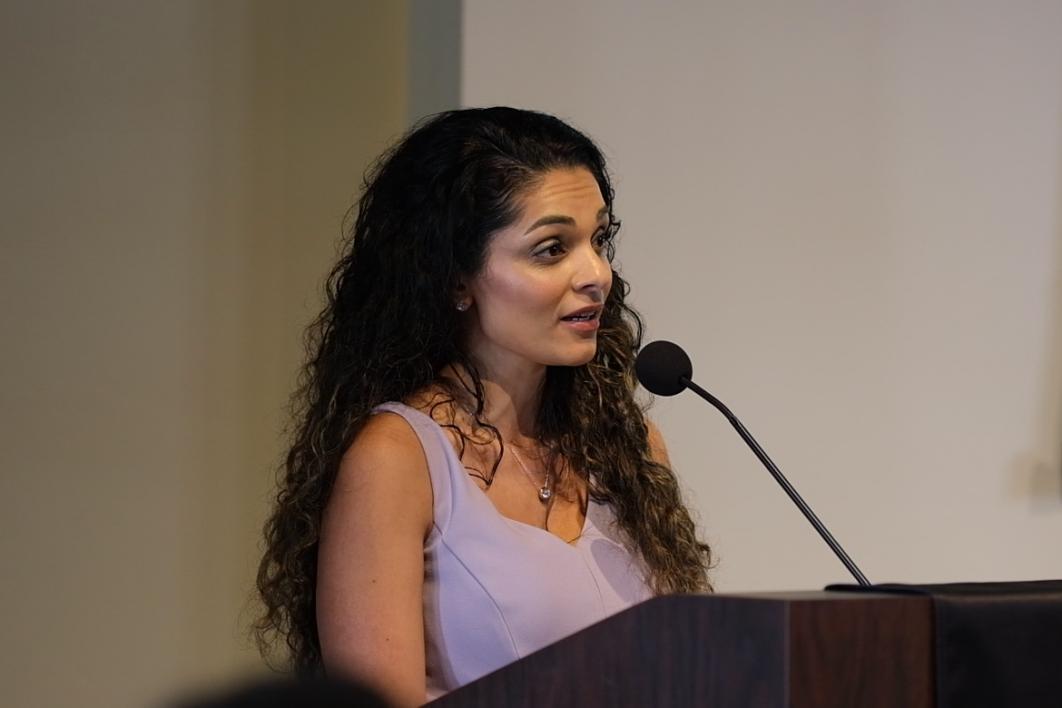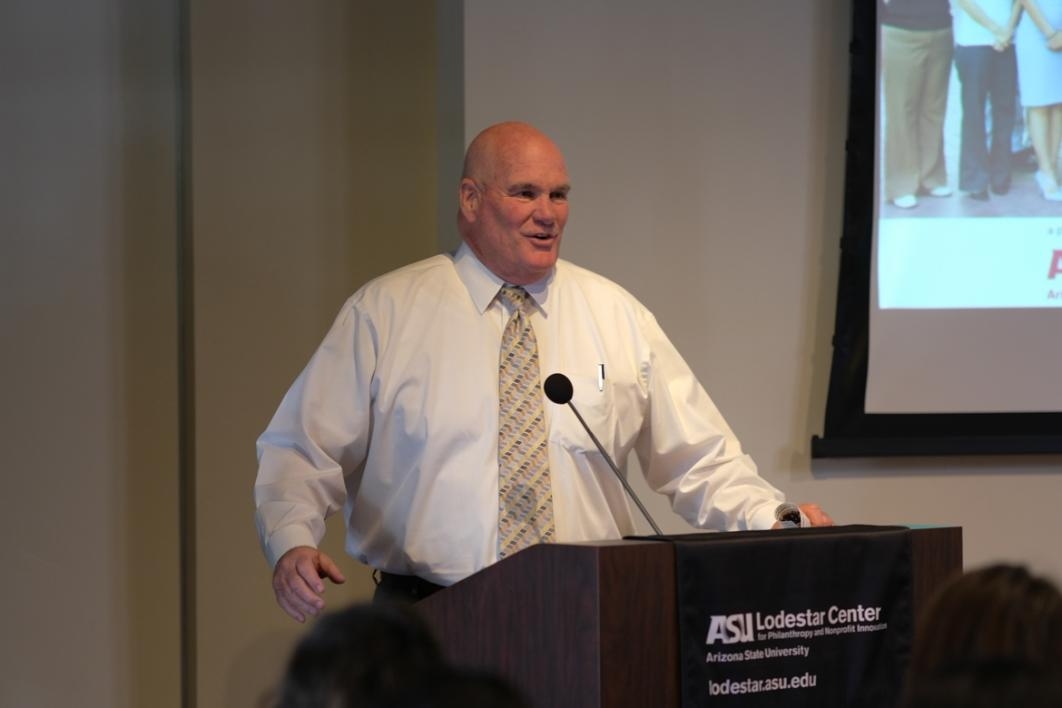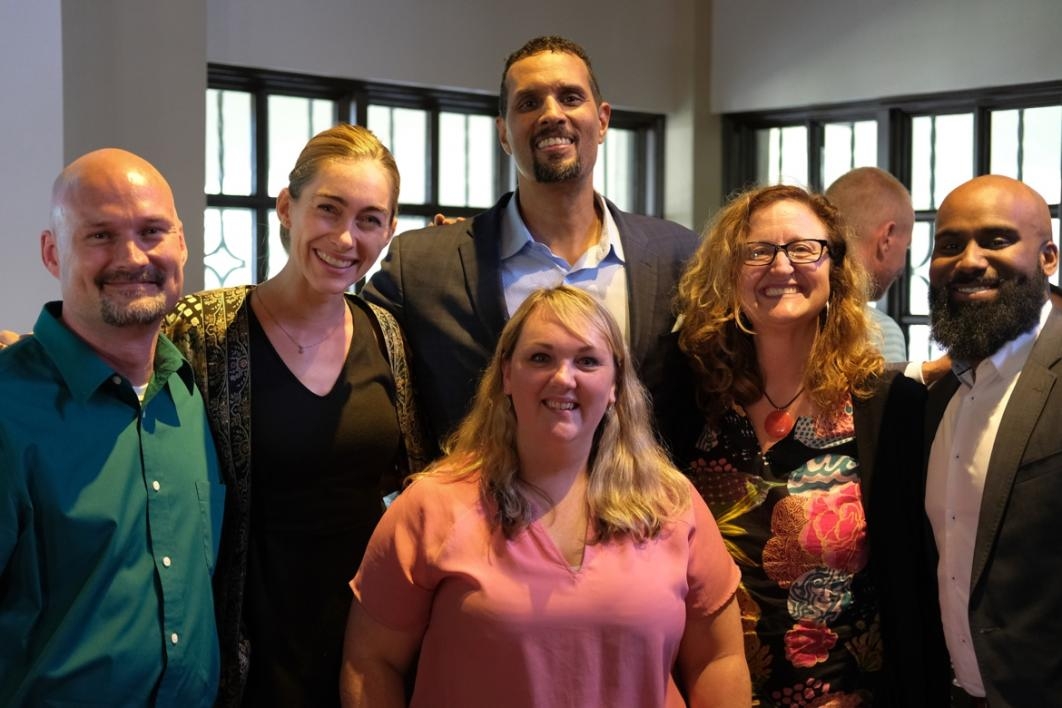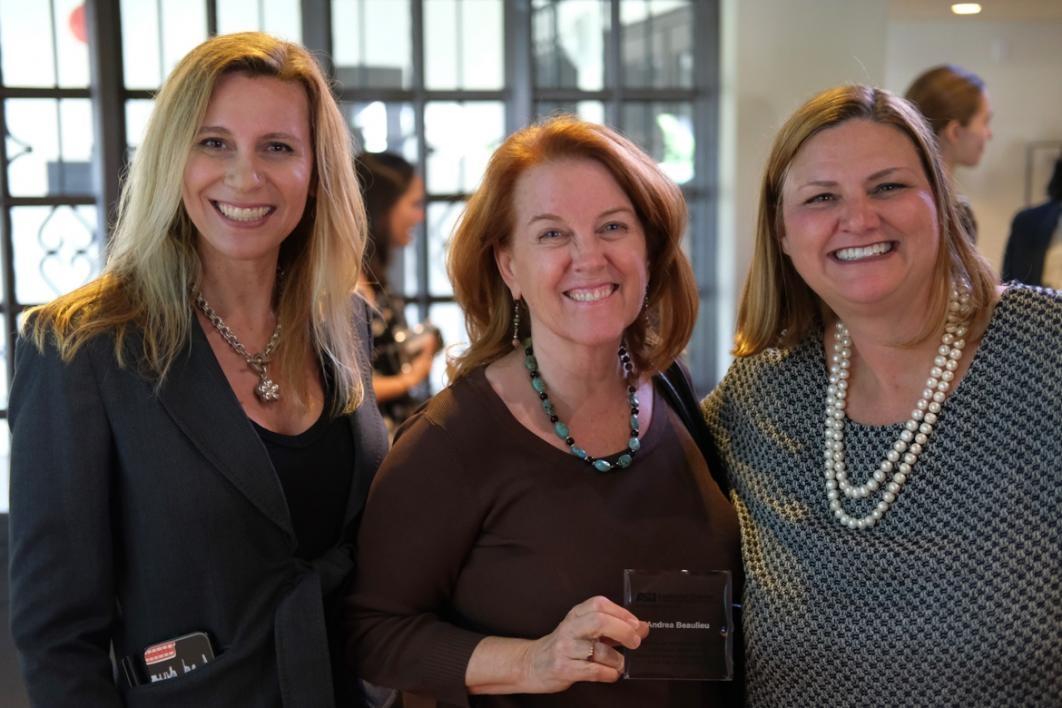'Connections are everything': 11th class graduates from ASU Lodestar Center's American Express Leadership Academy
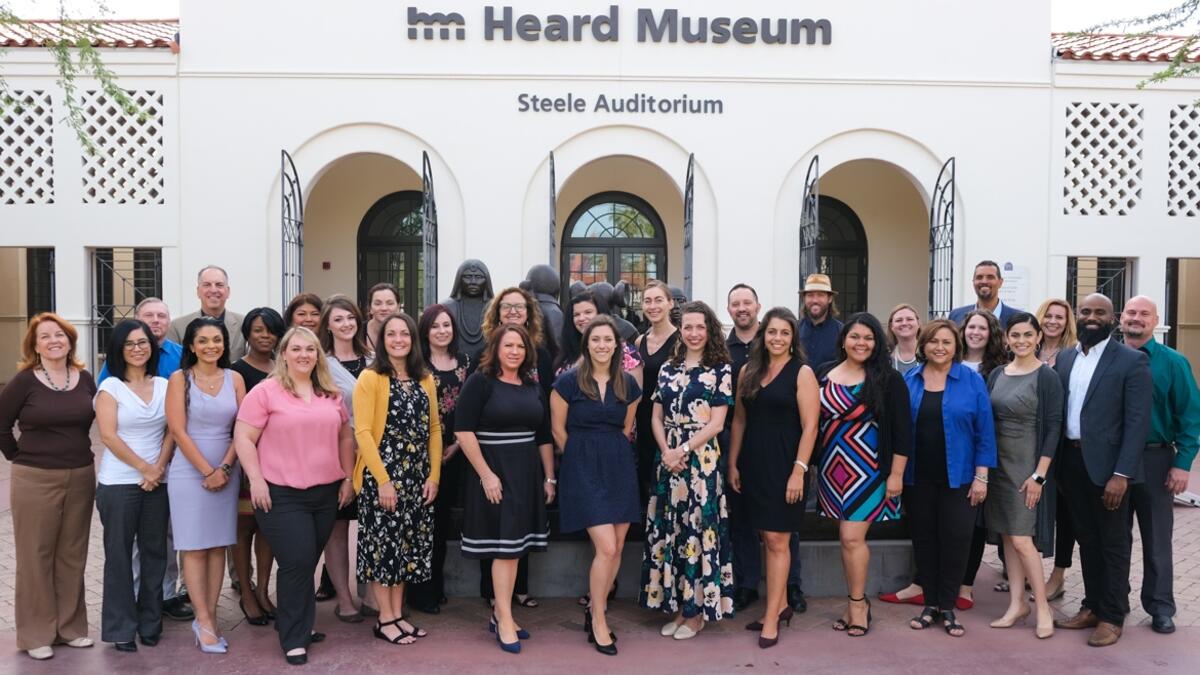
Class 11 graduated on May 10, 2019, at the Heard Museum.
Smiles on every face. Congratulations passed around left and right. Speakers saying they don’t want to speak for too long. Just another scene of another graduation in May.
Not quite. These students aren’t graduating from a school or a university.
On Friday, May 10, at the Heard Museum, 32 participants graduated from the American Express Leadership Academy at the ASU Lodestar Center. They are the program’s 11th class of emerging nonprofit leaders in the Phoenix metro area.
The participants spent almost 10 months together, meeting for monthly program days on leading and managing nonprofit organizations, working closely on their respective group projects outside of class, learning about themselves with the help of their classmates and executive coaches and bonding so closely that they say they’re nearly a family.
“This is a program for emerging leaders to be able to develop themselves as leaders, and I was looking for something like that,” said Claire Louge, one of the graduates of Class 11 and the training director for Prevent Child Abuse Arizona. “Not just about the logistics of managing a team or an organization, but the interpersonal and intrapersonal skills I wanted to develop.”
Jennifer Jenkin, another Class 11 graduate and the education manager for McDowell Sonoran Conservancy, said the academy helped her to realize many things about herself, such as her core values, how those are being implemented in her professional growth and her own leadership potential.
“Attending the academy made me realize how resilient I already was as a leader,” Jenkin said. “And that I wasn't necessarily leveraging my leadership skills to their full potential. (The academy has) helped me reflect a lot on who I am and what I bring to the table at an organization. It has helped me be able to recognize strengths and weaknesses in others in order to build highly effective teams.”
Launched in 2008 and originally called the Generation Next Nonprofit Leadership Academy, the Lodestar Center’s American Express Leadership Academy was expanded and renamed in 2014 thanks to additional funding from the American Express Foundation. The new grant allowed the academy to grow its class size to about 30 leaders, while adding programmatic offerings like 360-degree evaluations and one-on-one executive coaching. It’s a unique melding of professional and personal development in preparation for high-level leadership roles.
“This year’s class of academy graduates is exemplary as they have built their individual leadership skills while simultaneously unleashing the power of the network they have built throughout the year with their peers and with alumni from our prior classes,” said Robert Ashcraft, executive director of the ASU Lodestar Center and Saguaro Professor of Civic Enterprise in the Watts College of Public Service and Community Solutions and its School of Community Resources and Development. "We are grateful for our more than decade-long partnership with the American Express Foundation, whose leaders realize the value of nurturing nonprofit leadership as a powerful community development strategy and who values the relationship to our center given our ability to deliver on mutually beneficial goals.”
What is leadership?
Sadhna Bokhiria, chief operating officer of Kapoor Foundations, was chosen by her classmates as the graduation speaker for Class 11. She said she learned what leadership is from the academy.
“True leadership is understanding that you're more similar than you are different. Leadership is understanding that everyone is human, and everybody has the same core needs,” Bokhiria said the day before the ceremony, sentiments she shared during her graduation speech. “True leadership is helping people grow."
More than a class
Louge said that, when she applied, she was also hoping to make connections with other emerging leaders through the academy, which is a key part of the collaborative cohort model it uses.
“In Arizona, connections are everything, connections are key to our success as nonprofits,” Louge said. “So the more connections that we can make, the better.”
But those networking connections were just the start, she said.
“There's a lot of love in our class,” Louge said. “We support each other, we will learn things and reflect together, we go to each other's events, whether they’re work events or personal events. The connections I've made are both professional and personal. We developed a sense of a work family within this team. I'm going to miss it so much.”
Bokhiria said that this program was the first time she didn’t feel like an outsider in all her years of education, from grade school through her doctorate.
“This is the first educational experience I've had, where it's like, every single person in the room wants you to do well, and they cheer for you and they support you,” Bokhiria said.
Kenneth Mims, the superintendent for Science Prep Academy, said the academy and this class will always mean a lot to him.
“It's a network of friends who are leaders doing good work. This is a cohort that I feel that I will stay in contact with for the rest of my life,” Mims said. “Also I feel that it will (lead to) opportunities to partner with other organizations and to help more people in the community and do great things for a lifetime.”
Jenkin said that her favorite part of the academy was the people she spent so much time with.
“The people in this program have been amazing and wonderful,” Jenkin said, adding that many of them spend their free time together and even started a book club. “We've really become almost — I know it's cliche to say a family, I don't want to say family — but we've become really close. A lot of us have made friendships that are going to last well beyond the program.”
Many impacts from one class
For Jenkin, the academy’s impact didn’t stop at her or her classmates. After each monthly program day, she immediately started sharing what she had learned with her colleagues at work.
Mims said the curriculum they learned was very helpful and practical for his organization, too.
“A lot of the curriculum, lot of the lessons, a lot of the strategies that we were learning in the class, I can apply immediately within the next week," he said. "I felt more confident because I had ... tools or strategies that I could use to deal with situations. It was just very empowering.”
Program days are led by a variety of speakers and practitioners, from established nonprofit leaders to professors to community leaders, with plenty of interaction as the group hones leadership skills and delves into critical issues facing the nonprofit sector.
“I think everybody has walked out feeling they better understand themselves,” Jenkin said. ”And that they better understand the role that they play in organizations, and how to successfully take their team to the next step and implement change.”
And that, she said, ultimately has a significant impact on the nonprofit sector in Arizona.
“Now you've got this cohort of capable, skilled, qualified, competent leaders who can take these organizations into the next step — to become more professional, to continue to move that needle and to continue to have a bigger impact on the clients that they serve,” Jenkin said.
Louge said she doesn’t know what the impact of Class 11 will be yet, but she feels they’ve already found the key to success as they continue their work in the sector.
“This program forges real and meaningful relationships between people of different nonprofits, so that in the future, we can call upon each other if we need something,” Louge said. “Relationships are everything.”
Written by Troy Hill, ASU Lodestar Center
